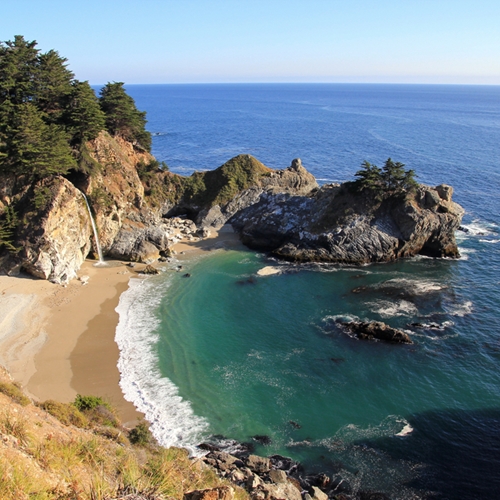
The debate surrounding the safety and environmental impact of hydraulic fracturing – or fracking – along the California coast has heated up, but some industry officials are touting the benefits of the oil extraction process, saying it's been going on for decades.
The fracking battle begins
The Wall Street Journal reported California lawmakers, amid the discovery of offshore fracking from federally overseen oil platforms, are pushing for a comprehensive probe of the practice to assess whether or not fracking increases the likelihood of offshore oil spills. The California Coastal Commission has launched an investigation of the practice, while state legislators try to persuade the U.S. Environmental Protection Agency and the Department of the Interior to perform their own investigations.
The hydraulic fracturing process is used in conjunction with horizontal drilling, and involves pumping a water-sand-chemical mixture into wells to break apart rock formations that contain bubbles of natural gas and pockets of oil. It has been implemented on a large-scale onshore throughout the U.S., and has created a booming domestic energy industry. However, under the federal Clean Water Act, oil and gas companies are not required to report the laundry list of chemicals that are used in conjunction with the fracking process, carcinogenic materials that may jeopardize drinking water supplies, not to mention methane gas detector equipment revealing high levels of methane gas being released from wells.
The non-disclosure of these chemicals is what Sen. Fran Pavley (D-California) is trying to address in a new bill that would regulate fracking and require the disclosure of the exact chemicals used in the process, The Wall Street Journal reported. Until those chemicals are known, serious questions pertaining to safety and environmental risks are left unanswered – something the California legislature is addressing with the new bill.
However, federal regulators countered the California Coastal Commission and state lawmakers by saying that only a dozen smaller, limited offshore fracking jobs have been conducted since the 1990's in all of the Pacific Ocean. Brain Petty, executive vice president for government and regulatory affairs at the International Association of Drilling Contractors told The Wall Street Journal that the IADC's position is all forms of fracking are safe. Petty said that offshore fracking does not come with any additional risks.
"It's just like they're out there in Kansas, except there's an ocean on top," Petty added.
Finding a happy medium
The Chief Executive of the California Independent Petroleum Association Rock Zierman said his group is supportive of the bill, and agrees that chemical disclosures should occur. However, Zierman believes Sen. Pavley's bill goes too far. With some environmental groups intend on shutting down the practice of fracking – putting a stop to the industry as a whole – Zierman thinks the bill would arm them with the ability to do just that. The only problem with that mentality, according to some environmental groups, is that there is currently no legislation at all, so fracking operations are free to do as they please.
"There are no specific laws or regulations addressing fracking in either context," said Brian Segee, a staff attorney at the Environmental Defense Center.
Ryan Lance, the CEO of ConocoPhillips – the largest of the independent oil companies in the U.S. – recently touted the benefits of fracking. Addressing a crowd in Bartlesville, Okla., Lance said that fracking will enable the lowering of energy costs and expand industry and job opportunities as a result, Tulsa World reported.
"Over five years ago, we were thinking that we were pretty scarce of resources and worried about where the supply was going to come from to feed the demand that was growing in the world today," Lance said. "And today we see a lot more supply, a lot more opportunity, whether unconventional in North America or around the world or some of the deep-water provinces or some other opportunities, unconventional or conventional globally, against the backdrop of the demand situation that's a little bit tenuous today."
Industrial Safety News brought to you by Safety Systems Technology, Inc., leaders in fire and gas detection.